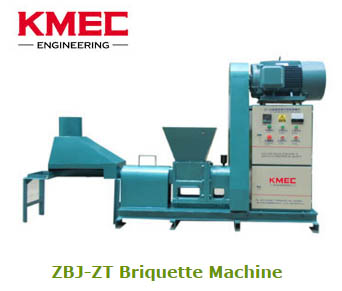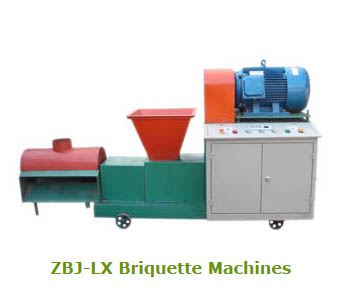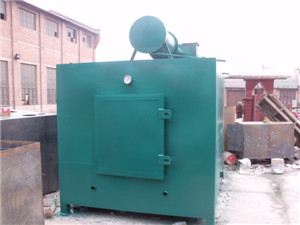How to Use Charcoal Briquette Machine
Charcoal briquettes have wide application both in industrial and home use featured with high density, small volume and good combustibility. If you own abundant sawdust or saw shavings and want to turn them into briquette fuel or briquette charcoal, here you can get to know how to use charcoal briquette machine or a briquette plant to make briquettes and charcoal.
We can offer automatic briquette plant equipped with charcoal briquette machine and charcoal furnace to turn your sawdust or saw shavings into value added briquettes and charcoal which boast as newly developed environment-friendly renewable fuel. The charcoal briquette can be extruded from
briquette machine and carbonized into charcoal featuring smokeless performance, long-time combustion and high thermal value.


Briquetting is the process that biomass is compressed under high pressure and high temperature. The self bonding of biomass to form a briquette involves the thermo plastic flow of the biomass. The lignin content that occurs naturally in biomass is liberated under high pressure and temperature. Lignin serves as the glue in the briquetting process, thus binding, compressing the biomass to form into high density briquettes.
During the briquetting, no binding agent should be put into use in the briquette machine. Generally speaking, charcoal briquette machine refers to not only briquette machine per se, but also covering material pre-treating equipment and post-briquetting machine. Namely, debarker, crusher, hammer mill, dryer, sifter and packing machine. As for the processing from sawdust, saw shavings into briquettes, you can also check up the technique.
Link to flow chart of briquetting and charring
The biomass briquette compared with coal
The use of biomass briquettes has been steadily increasing as industries realize the benefits of decreasing pollution through the use of biomass briquettes. Briquettes provide higher calorific value per dollar than coal when used for firing industrial boilers. Along with higher calorific value, biomass briquettes on average saved 30–40% of boiler fuel cost. But other sources suggest that cofiring is more expensive due to the widespread availability of coal and its low cost. However, in the long run, briquettes can only limit the use of coal to a small extent, but it is increasingly being pursued by industries and factories all over the world. Both raw materials can be produced or mined domestically in the United States, creating a fuel source that is free from foreign dependence and less polluting than raw fossil fuel incineration.
Environmentally, the use of biomass briquettes produces much fewer greenhouse gases, specifically, 13.8% to 41.7% CO2 and NOX. There was also a reduction from 11.1% to 38.5% in SO2 emissions when compared to coal from three different leading producers, EKCC Coal, Decanter Coal, and Alden Coal. Biomass briquettes are also fairly resistant to water degradation, an improvement over the difficulties encountered with the burning of wet coal. However, the briquettes are best used only as a supplement to coal. The use of cofiring creates an energy that is not as high as pure coal, but emits fewer pollutants and cuts down on the release of previously sequestered carbon. The continuous release of carbon and other greenhouse gasses into the atmosphere leads to an increase in global temperatures. The use of cofiring does not stop this process but decreases the relative emissions of coal power plants.

Over the past years, Charcoal briquette machine has become the reliable helping hand for farmers turning their agricultural residue such as rice husk, wheat straw, corn stalks and cobs into briquettes and charcoal, having won a lucrative business for them. However, the point is that farmers working within their individual farmland cannot expand the production line in a larger scale due to limited space and counting on themselves alone. Therefore, more people collectively purchase raw material from farmland and start their own professional briquette plant with more working areas.Besides material offered by general farmland farmers, other materials such as furfural residue, bagasse, mashroon cobs, refined sludge, residue from paper making factories and wood panel and plank rich in carbon substances.
High assurance sawdust
briquette machine for sale . Kingman can offer you both small-scale charcoal briquette plant and large-capacity briquette machine to meet your demands. As a promising industry of green energy, charcoal briquette machine and briquette plant enjoy high yield yet low costs bringing more profits to you.
------------------------------------------------------------------------------------------------
ZBJ-CY briquette machines can press the straw (agricultural waste) into briquette. The product is biomass fuel. It can be run with electrical power and diesel power. the raw materials are all kind of agricultural wastes. and the moisture can be 5%-30%. The diameter of the raw material is from 8mm to 70mm.


